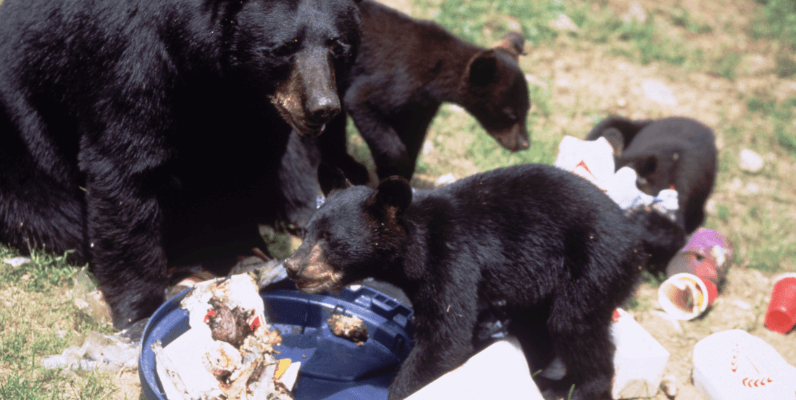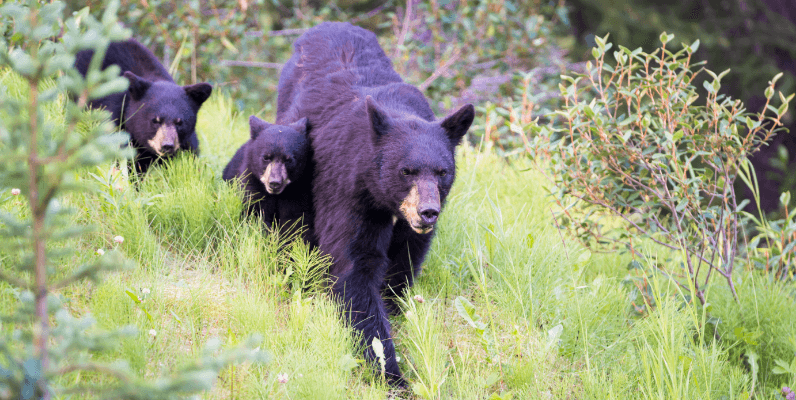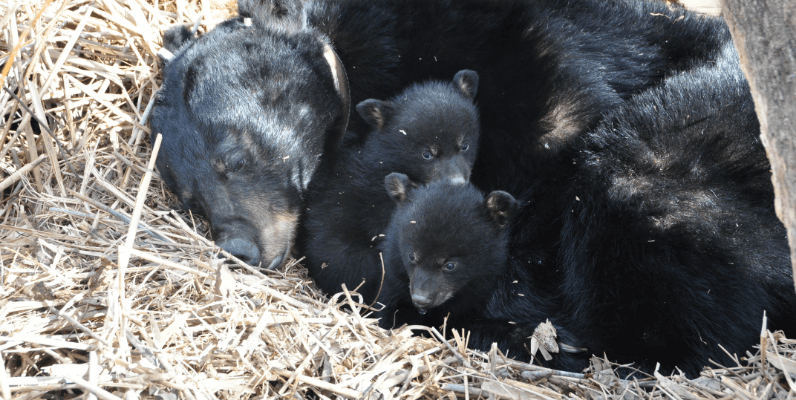Compost piles, vegetable gardens and fruit or nut trees can attract black bears. This is especially true when wild food sources are scarce. The odor and food rewards from compost piles, gardens and fruit trees can encourage bears to return to the area.
Follow these tips to avoid attracting bears.
- Do not place meat, dairy or any sweet foods in compost or mulch piles. Adding lime can reduce odors while helping decomposition.
- To minimize odors, compost in a 3-to-1 ratio of “brown” to “green” ingredients. Brown ingredients include dried plant materials, fallen leaves, small sticks, wood shavings, sawdust, and shredded paper products. Green ingredients include vegetable scraps, coffee grounds, and fresh plant materials.
- Consider indoor composting for kitchen scraps. When adding these to a compost pile, cover with brown ingredients (listed above) to ensure that none are exposed.
- Harvest gardens immediately as vegetables mature. Keep vegetable gardens free of vegetable wastes.
- Residents that have fruit or nut trees on their property should recognize that bears will be attracted to any residual fruit or nuts left on the ground. To minimize bear activity in your yard, pick up any fruit or nuts that fall from trees daily. Discard them in bear-resistant garbage containers and do not let fruit rot on the ground.
- Locate compost piles, gardens and fruit orchards at least 50 yards from forest tree lines or other sources of cover for bears.
- Consider installing electric fencing around compost piles, vegetable gardens and fruit trees and orchards. It is the most effective way to deter bears.
- Electric fencing should be simple and as strong as possible. Use an energizer with a minimum joule rating of 0.7 and a voltage output of at least 6,000 volts. Use bait on the fence. Fencing is only effective if it is maintained.
- Visit our Bear Facts for Agriculturists page for detailed fencing and maintenance instructions.

 Official Site of The State of New Jersey
Official Site of The State of New Jersey





